CNBC: Middle East escalation fears spike as Houthis launch most damaging attack yet
The Middle East looks set for a path of escalation on multiple fronts as Yemen’s Houthi rebels launch their most damaging strike yet, and Israeli forces close in on southern Gaza.
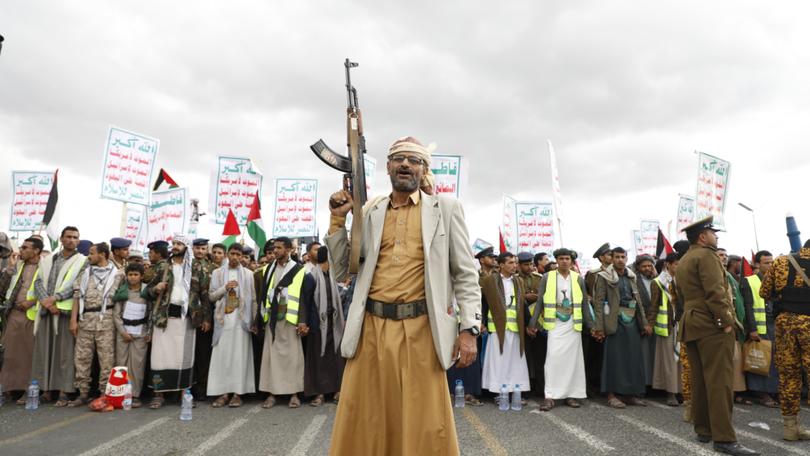
The Middle East looks set for a path of escalation on multiple fronts as Israeli forces close in on what is left of southern Gaza, and as Yemen’s Houthi rebels launch their most damaging strike yet on a ship in the Red Sea.
The crew of the British-owned, Belize-flagged bulk carrier MV Rubymar were forced to abandon ship in the Gulf of Aden on Monday, receiving help from a nearby merchant vessel and coalition warship to reach a nearby port after “two anti-ship ballistic missiles were launched from Iranian-backed Houthi terrorist-controlled areas of Yemen,” according to U.S. Central Command.
Houthi military spokesman Yahya Saree claimed the group’s responsibility for the attack, calling it their most severe yet. The group claim to support Palestinian civilians amid Israel’s retaliatory military campaign in the Gaza Strip.
Sign up to The Nightly's newsletters.
Get the first look at the digital newspaper, curated daily stories and breaking headlines delivered to your inbox.
By continuing you agree to our Terms and Privacy Policy.“The ship was severely damaged, leading to its complete halt … It is now at risk of sinking in the Gulf Aden,” Saree said Monday.
Simultaneously, fighting is raging between Israel and Hamas in the Gaza Strip with no sign of abating despite diplomatic efforts by a number of countries.
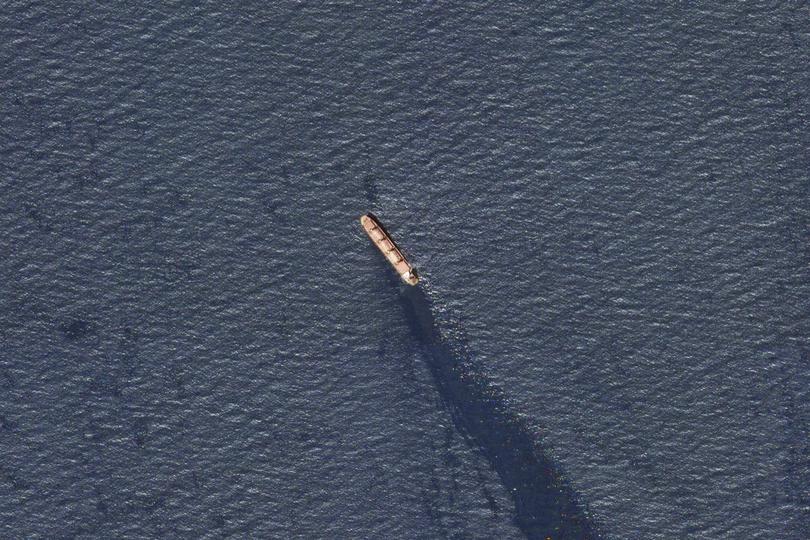
Israel’s government has warned of a potential ground invasion of Rafah, Gaza’s southern corner along the Egyptian border where more than 1.5 million Palestinians — the majority of whom were displaced from other parts of Gaza — are sheltering, mostly in makeshift tents with very little access to food, water and medicine.
More than 29,000 people have been killed in Gaza since Israel’s offensive on the blockaded territory began on Oct. 7, when Hamas militants launched an unprecedented terror attack on Israel that killed roughly 1,200 people and took another 240 hostage.
“I think unfortunately, we need to be prepared for more escalation really on two fronts,” Charles Myers, chairman and founder of advisory firm Signum Global Advisors, told CNBC’s “Capital Connection” on Tuesday.
“The Houthis are proving to be far more effective at disrupting international maritime trade,” Myers said.
“And the military response so far from the U.S. and the U.K. has not diminished or degraded their capability, which means we need a much larger military response from the U.S. and the U.K. in the next several days to try to take out more of these capabilities, so we need to watch that on the other side.”
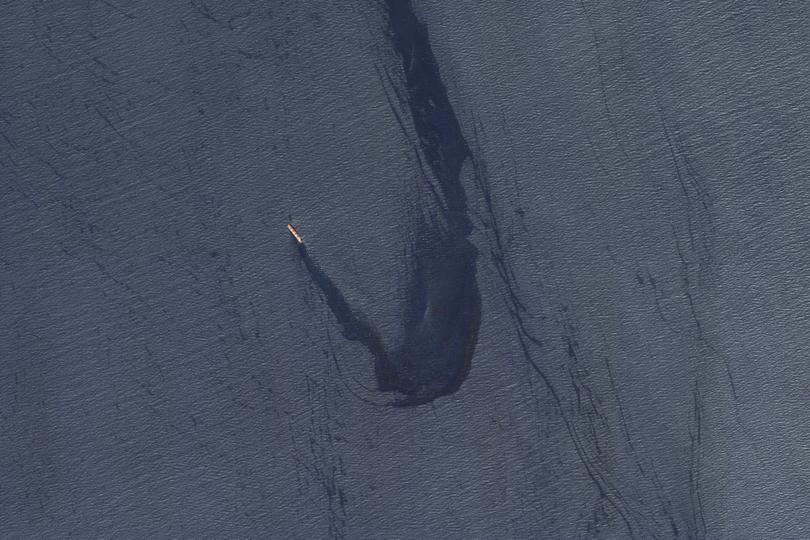
Meanwhile, “Israel I think is going to continue on their path of conquering Gaza in the next four to six weeks,” Myers said. “They are then now already focused on the second phase of their war, which is to push Hezbollah 32 kilometers back into Lebanon, which is even more controversial in a way from a geopolitical or military perspective. And we need to see what Hezbollah does to respond to Israel.”
Hezbollah, the powerfully-armed Lebanese Shia militant and organization backed by Iran, is also engaged in regular exchanges of fire with Israeli forces as well as attacks on Israeli military installations, while Israel has carried out assassinations of senior Hezbollah and Hamas figures in Beirut. A full-on war between the two would be devastating for both sides, regional analysts say.
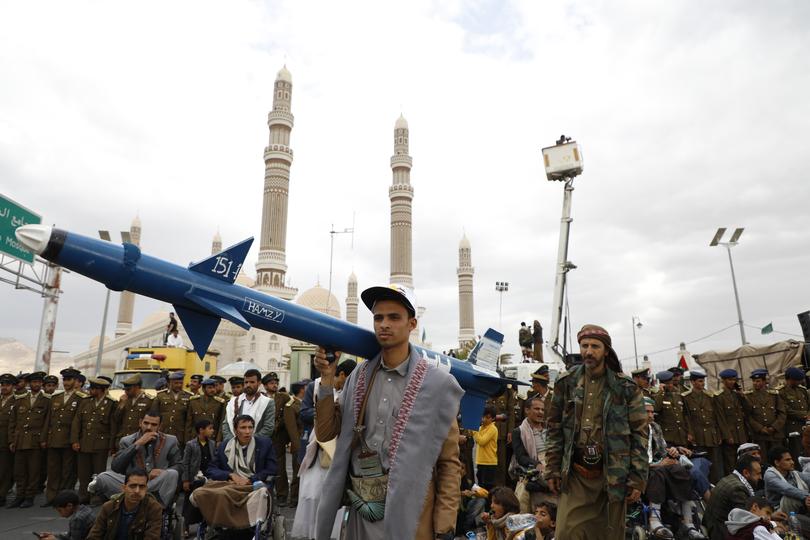
Mounting alarm over planned Israeli assault on Rafah
Twenty-six EU countries — every member of the bloc except Hungary — have issued a warning against Israel’s offensive in Rafah, saying it would only deepen the humanitarian catastrophe there.
EU foreign ministers called in a joint statement for an immediate humanitarian pause that would lead to a lasting cease-fire. Even the U.S., Israel’s staunchest backer, proposed a rival draft U.N. Security Council resolution, and called for a temporary cease-fire as well — the first time the U.S. has used the word cease-fire in any U.N. action related to the war.
Israel’s government has so far rejected the calls, with Prime Minister Benjamin Netanyahu saying that anyone telling Israel not to invade Rafah is telling it to lose the war.
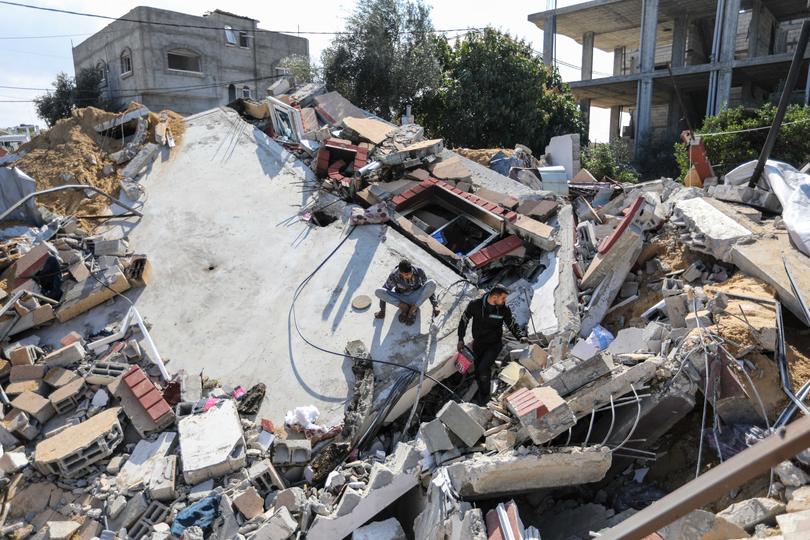
Still, the government hasn’t fully committed to the assault, with some ministers saying that it will only go ahead if Israeli hostages are not released by the start of the Muslim holy month of Ramadan, which begins around March 8.
Asked by CNBC’s Dan Murphy if there was anything the international community could do to stop Israel’s planned offensive into Rafah, Myers replied in the negative.
“No; I think at this point the war cabinet in Israel is going to continue on their path, which they’ve told the world ... is the full conquest of Gaza. We may get a temporary cease-fire, which they’re working on between the U.S., Qatar, Israel and other countries. But even if it is a temporary cease-fire, Israel will go right back in and finish, they will take Rafah,” he said.
Myers noted that the Biden administration has been more critical than ever of Israel’s plans, openly opposing any incursion into Rafah. But that still likely won’t be enough to force Israel to change course, he said.
“Even the Biden administration, which has had a rhetorical pivot in the last week on Gaza, really ratcheting up the rhetoric and the sort of threats to Israel saying ‘please slow down, please stop, please be more mindful of all the civilian casualties’, for example ... I think even with that pivot, Israel is going to keep doing exactly what they’re doing.”
